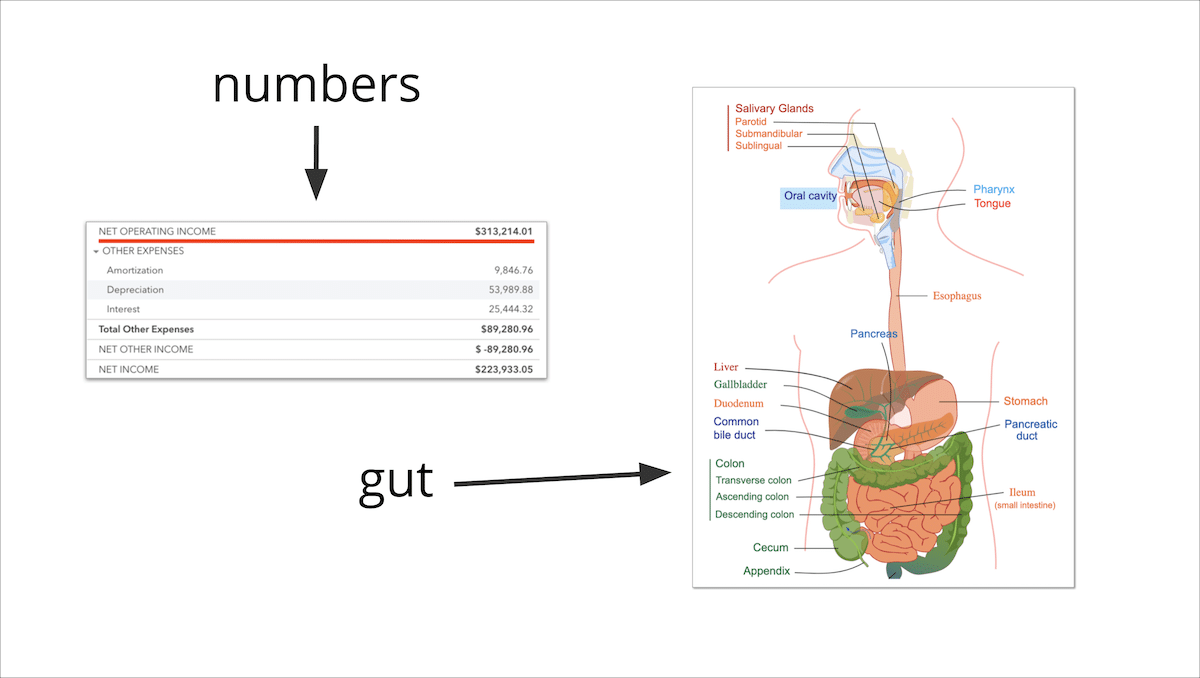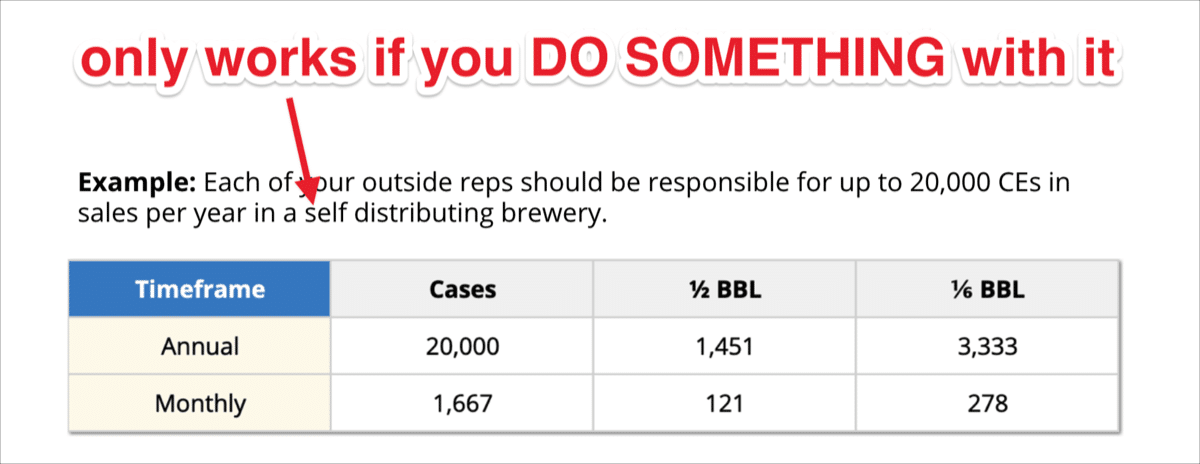New England is surrounded by beer giants… some of the biggest names in the industry.
And more specifically, Massachusetts is now home to over 200 breweries, with more on the way.
Which makes it all the more worthy of reflection when a relatively new entrant like Bent Water Brewing in Lynn, Mass has successfully navigated the fierce competition, despite heavy reliance on distribution with tempting opportunities abound to chase the dollar through expansion outside of their home market…
And gone on to be recognized as one of the area’s fastest-growing self-distribution breweries…
While carving out a disciplined path to profitability.
The Pro vs. Amateur Difference
In the talk excerpt below, I walk through their journey, and highlight the elements of their strategy that have led to success – in contrast to the unfortunate situation I laid out in the Council Brewing example.
(You’ll also hear a callback to my intentionally offensive pro vs. amateur chart. Bringin’ it full circle here folks.)
Give it a listen.
The natural next question in everyone’s mind then is…
What does it take to turn pro?
If you haven’t noticed yet, …
I have a tendency to sound like a broken record when I get locked onto an idea.
Which is why you’ll probably hear me repeat the following well into 2020:
Pro breweries make decisions with numbers.
Pro breweries scale with processes.
Pro breweries hold their people accountable.
Funny story, my wife ribbed the crap out of me when I showed her that…
- I was wearing plain jeans and black shirt when I gave this talk, and…
- I decided on a Simon Sinek-style mantra to communicate the key takeaway from the presentation.
Her response?
“Who do you think you are, Steve Jobs or something?”
That’s what loved ones are for right?
Deflating your ego and taking your self-importance down a peg.
Anyway…
The reason I decided on that mantra is because it’s a truism about the brewing industry that is both overlooked in its simplicity, and also obvious in retrospect.
A perfect candidate for repetition.
I want this idea to seep into your consciousness. It puts you in the driver’s seat, and it lays out a path forward regardless of your current circumstances.
So first, here it is: my recipe for “turning pro.”
Then, after you give it a watch…
Part 1: Pro breweries make decisions with numbers
We’re all full of them…
“One is fruitful only at the cost of being rich in contradictions.” ~ Friedrich Nietzsche
…contradictions that is.
Those nagging internal battles your friends, family members, and colleagues would find both hilarious and repulsive if they could live inside your head for a day.
You’ve got them too .
And I’m certainly no different.
Here’s one.
Even though I have a combined CPA, MBA bumper sticker after my name…
Boy do I looovvvee goin’ with my gut!
Shooting from the hip is one of my favorite pastimes… and it’s always in equal and opposite tension with the reality check that is the number-crunching, diligent, party-pooper side of my brian.
I’ve found that brewery owners fall even a bit further on the “gut” side of the spectrum.

The problem is, apparently humans are susceptible to somewhere in the neighborhood of 188 cognitive biases.
(Damn you Semmelweis reflex!)
All this means is that those that have (or develop) “the numbers knack,” and figure out how to leverage it to their advantage have an unfair advantage over the rest of the market.
This brings us to the first component of the pro brewery mantra:
Pro breweries make decisions with numbers.
What does this look like in practice?
Numbers-driven decisions in practice
Two of my favorite examples are based on benchmarks that you’ve seen before:
- Pro breweries spend 3%-5% of revenue each month on marketing. If you’re spending less than 3% you are wasting your money. So if you have on average $100k in monthly revenue you should be spending between $3,000 and $5,000 per month.
- Pro breweries hold their outside reps responsible for up to 20,000 CEs in sales per year (in a self distributing brewery). Tied in with this, sales rep compensation should not exceed 15% of revenue.
But like I said before, the benchmarks alone aren’t enough…
It’s what you do with them that determines whether or not they have an impact on the outcome. Which means that you and your team can’t spreadsheet the problem to death and expect things to change.
Instead, we need to use the numbers as the anchor point to derive the hard-hitting questions that spark the “real” conversation and push the ball forward.

Here’s what these might look like for the marketing spend benchmark:
- First, are we spending enough on marketing?
- If not, why not and how do we get started?
- Next, how do we split that between taproom and wholesale?
- Drill down even further, within those silos, what are we allocating the money to?
- Finally, what is the ROI on the spend?
- Are we seeing increased sales in taproom?
- Is the distributor picking up more often?
- Are accounts thanking your reps for the ad support?
And for the outside sales target:
- How much are we paying our reps?
- Is it in line with our current sales volume?
- Do we have reasonable targets established?
- If our salaries are under or over the target, do we need to adjust our comp plan… add more reps… subtract reps… change out reps… improve our communication and accountability… adjust our strategy?
And most importantly, in all cases:
- Who is responsible for taking action and moving the needle on the metric in question?
- Do they have what they need to get the job done?
- When should we expect an update on progress?
But that’s getting into part three of the mantra… more on that below.
Right now, I want you to think about (a) what numbers you need to see in order to make better decisions in your brewery, and (b) what hard questions you could be asking that you aren’t currently.
Part 2: Pro breweries scale with processes
Question for you:
What do taproom reconciliations, keg cleaning, and following recipes have in common?
(Besides a team member who has a high propensity for snarky, passive-aggressive comments.)
Answer: They’re all processes that should be standardized, optimized, and repeated the same way day-in, day-out.
And here of course, I’m referring to the second component of our pro brewery mantra:
Pro breweries scale with processes.
And this segment walks through the specifics of what this means in practice:
And if you’re going to show this to your team, give your packaging guy my apologies in advance…
He’ll get over it.
Part 3: Pro breweries hold their people accountable.
We’ve talked a lot about accountability before, so I’ll keep this one short.
At the end of the day, it’s THE thing that determines whether or not the brewery achieves its potential.
It’s also the most personal, emotional, and difficult aspect of the business for most owners to get a grip on.
It’s hard work to hold your Dir. of Operations’ feet to the fire on the expense reduction targets you set at the beginning of the quarter that haven’t happened yet.
It’s hard work to ask your Dir. of Sales, who’s been loyally building the business with you for years, to explain and fix their underperformance without caveats.
It’s hard work to tell your co-founder they’re in the wrong seat.
But for those who can do the hard work, maintain their composure, and work through it with their team…
…well let’s just say that’s why it rounds out our pro brewery mantra:
Pro breweries hold their people accountable.
All of the benchmarks and process in the world won’t do you a damn thing without a motivated and accountable team all working in concert to achieve a shared vision.
And it starts at the top.
The Path To Profitability
The path to profitability is accessible, achievable, and straightforward.
The only question now is:
Will you decide to walk that path?
Speaking of which…
How do you make decisions and measure your performance?
What numbers are worth paying attention to?
What processes do you need in place to scale?
What does your leadership team do with all of that information?
I want your input on the role benchmarks and decision-making play in your business.
Further, can you even “measure” things like accountability?
We not only believe you can, but that without doing so all of the other measurements, numbers, and benchmarks don’t carry nearly as much weight.
But we’d like to hear from you.
Whether you’re a seasoned vet, with years of hard-won wisdom under your belt, or are new on the scene, full of new (albeit unproven) ideas and raw potential…
We’d appreciate your perspective, and ask that you take 3 minutes to fill out as much of this survey as you’d like.
This’ll be a key input to the benchmarks-based service option we’re developing for 2020, and we’d like your feedback so that we can make it as useful and valuable as possible.
Appreciate your input!